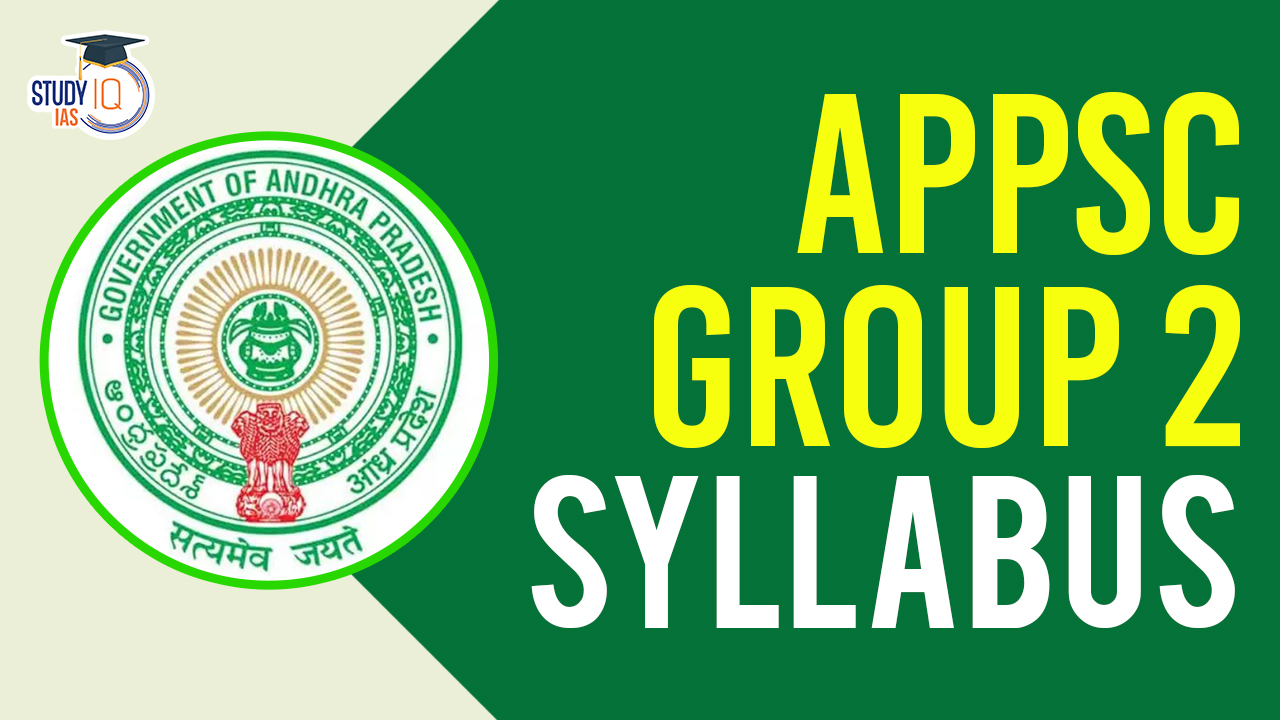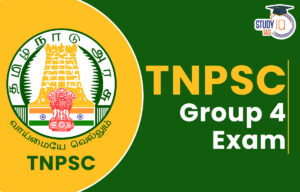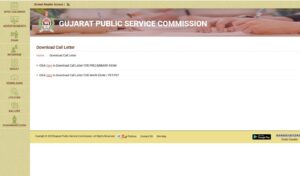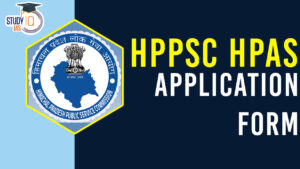Table of Contents
The Andhra Pradesh Public Service Commission (APPSC) conducts the APPSC Group 2 Exam to recruit candidates for Executive and Non-Executive posts. The selection process includes a Preliminary Exam, Mains Exam, and Computer Proficiency Test. Candidates who clear all these stages successfully will be eligible for final selection.
For the convenience of candidates, we have provided the detailed APPSC Group 2 Syllabus 2025 for both Prelims and Mains in this article, along with a direct PDF download link.
APPSC Group 2 Syllabus 2025
The comprehensive ఎపిపిఎస్సి గ్రూప్ 2 Syllabus encompasses key subjects such as General Studies, Mental Ability, the History of Andhra Pradesh, the Indian Constitution, the Indian Economy, and Science and Technology. In this article, we have provided an in-depth breakdown of the syllabus, segmenting it into specific topics for both the Prelims and Mains Exams. For easy access, candidates can obtain the official APPSC Group 2 Syllabus 2025 PDF by scrolling down.
| APPSC Group 2 Syllabus Overview | |
| Organization | Andhra Pradesh Public Service Commission (APPSC) |
| Post Name | APPSC Group 2 (Executive & Non-Executive Posts) |
| Exam Name | APPSC Group 2 Exam 2025 |
| Category | Syllabus |
| Selection Process |
|
| Type of Questions | Objective Type (MCQ) |
| Number Of Questions in Prelims Exam | Total 150 Question |
| Total Papers in Mains Exam | Paper 1 and Paper 2 |
| Duration Of APPSC Group 2 Prelims | 150 Minutes |
| Duration Of APPSC Group 2 Mains | 150 Minutes for each section |
| Negative Marking | 1/3rd Mark for each wrong answer in both Prelims and Mains |
| APPSC Official Website | psc.ap.gov.in |
APPSC Group 2 Syllabus 2025 PDF
Aspiring candidates are encouraged to access the AP Group 2 Syllabus 2025 PDF for comprehensive exam preparation. The link to download the official syllabus is provided below. To obtain the syllabus, candidates can simply click on the provided link. Take advantage of this valuable resource to gear up effectively for the upcoming APPSC Group 2 examination.
AP Group 2 Syllabus 2025 PDF (Revised)
APPSC Group 2 Exam Pattern 2025
Before delving into the detailed APPSC Group 2 Syllabus 2025, aspirants must acquaint themselves with the recently unveiled examination pattern for the APPSC Group 2 Recruitment 2025. The exam patterns for both the Prelims and Mains stages are outlined below for your reference:
| Exam | Type | Subjects | No. of Questions | Maximum Marks | Duration | Negative Marking |
|---|---|---|---|---|---|---|
| Prelims | Objective | General Studies and Mental Ability | 150 | 150 | 150 mins | Yes (1/3 mark) |
| Mains | Objective | Paper – I: Social History of AP, Indian Constitution | 150 | 150 | 150 mins | Yes (1/3 mark) |
| Paper – II: Indian and AP Economy, Science & Tech | 150 | 150 | 150 mins | Yes (1/3 mark) | ||
| Comp. Prof | Practical | Proficiency in Office Automation with Computers | – | 100 | 60 mins | – |
APPSC Group 2 Prelims Exam Pattern
- The Preliminary Exam constitutes the initial phase of the selection process for the main examination.
- It comprises 150 multiple-choice questions.
- A penalty of one-third of the total marks is levied for each incorrect response.
- The duration of the exam is set at 150 minutes.
| Subjects | Topics | No. of Questions |
| General Studies | Ancient, Medieval, and Modern History |
30
|
| Geography | 30 | |
| Indian Society | 30 | |
| Current Affairs | 30 | |
| Mental Ability | 30 |
APPSC Group 2 Mains Exam Pattern 2025
- The Mains Exam consists of three equally weighted papers.
- All questions are of the objective type and are set at a bachelor’s degree level of difficulty.
- Each correct answer carries one mark, while an incorrect response results in a deduction of 1/3 mark.
| APPSC Group 2 Mains Exam Pattern | ||||
| Paper No. | Subjects | Questions | Marks | Duration |
| Paper-I | Social history of Andhra Pradesh and cultural movements in Andhra Pradesh. A General View of the Constitution of India | 150 | 150 | 150 minutes |
| Paper-II | Indian and AP Economy Science and Technology | 150 | 150 | 150 minutes |
| Total | 300 | 300 | 300 minutes | |
APPSC Group 2 Computer Proficiency Test
The Computer Proficiency Test is divided into two sections, each evaluating specific aspects of candidates’ computer proficiency. Participants are allotted 60 minutes for this practical examination.
| Test Component | Test Duration (Minutes) | Maximum Marks | Minimum Qualifying Marks |
| Proficiency in Office Automation with usage of Computers and Software | 60 | 100 | SC/ST/PH: 30, B.C’s: 35, O.C’s: 40 |
APPSC Group 2 Prelims Syllabus 2025
The APPSC Group 2 Preliminary Exam is the first phase of the recruitment selection process. Group 2 consists of the following subjects with their respective marks allocation: Indian History (30 Marks), Geography (30 Marks), Indian Society (30 Marks), Current Affairs (30 Marks), and Mental Ability (30 Marks). The first paper of APPSC Group 2 serves as a screening paper. Below is a comprehensive breakdown of the APPSC Group 2 Syllabus 2025 for the General Studies section:
Indian History (30 Marks)
- Ancient History: Salient features of Indus Valley Civilization, Vedic age, Emergence of Buddhism and Jainism, Mauryan Empire, Gupta Empire – Their administration, Socio-Economic and Religious Conditions, Art and Architecture, Literature – Harshavardhana and his Achievements.
- Medieval History: The Chola Administrative System, Delhi Sultanate, The Mughal Empire – Their Administration, Socio-Economic and Religious Conditions, Art and Architecture, Language and Literature – Bhakti and Sufi Movements – Shivaji and the rise of Maratha Empire – Advent of Europeans.
- Modern History: 1857 Revolt and its Impact, Rise and Consolidation of British Power in India, Changes in Administration, Social and Cultural Spheres – Social and Religious Reform Movements in the 19th and 20th Century – Indian National Movement: its various stages and important contributors and contributions from different parts of the country – Post-Independence Consolidation and Reorganization within the country.
Geography (30 Marks)
- General and Physical Geography: The Earth in our Solar System, Interior of the Earth, Major Landforms and their features, Climate, Structure and Composition of Atmosphere-Ocean Water: Tides, Waves, Currents – India and Andhra Pradesh: Major Physiographic features, Climate, Drainage System, Soils and Vegetation – Natural Hazards and Disasters and their Management.
- Economic Geography of India and AP: Natural resources and their distribution, Agriculture and Agro-based Activities, Distribution of Major Industries and Major Industrial Regions, Transport, Communication, Tourism and Trade.
- Human Geography of India and AP: Human Development, Demographics, Urbanization, and Migration, Racial, Tribal, Religious, and Linguistic groups.
Indian Society (30 Marks)
- Structure of Indian Society: Family, Marriage, Kinship, Caste, Tribe, Ethnicity, Religion, and Women.
- Social Issues: Casteism, Communalism and Regionalisation, Crime against Women, Child Abuse and Child Labour, Youth Unrest, and Agitation.
- Welfare Mechanism: Public Policies and Welfare Programmes, Constitutional and Statutory Provisions for Schedule Castes, Schedule Tribes, Minorities, BCs, Women, Disabled, and Children.
Current Affairs (30 Marks)
Major Current Events and Issues about:
- International,
- National, and
- State of Andhra Pradesh.
Mental Ability (30 Marks)
- Logical Reasoning (Deductive, Inductive, Abductive): Statement and assumptions, Statement and Argument, Statement and Conclusion, Statement and Courses of Action.
- Mental Ability: Number Series, Letter Series, Odd Man out, Coding-Decoding, Problems relating to Relations, Shapes, and their Sub Sections.
- Basic Numeracy: Number System, Order of Magnitude, Averages, Ratio and Proportion, Percentage, Simple and Compound Interest, Time and Work, and Time and Distance. Data Analysis (Tables, bar diagram, Line graph, Pie-chart).
APPSC Group 2 Mains Syllabus 2025
APPSC Mains is the second phase of the Group 2 Selection Process. Group 2 Mains consists of two papers: Paper 1 is on the social and cultural history of Andhra Pradesh and the Indian Constitution, and Paper 2 is on the Indian and Andhra Pradesh Economy, science, and Technology. Each paper is worth 150 marks and has a time limit of 150 minutes.
APPSC Group 2 Syllabus for Mains Paper – 1 (150 Marks)
The syllabus for APPSC Group 2 Mains consists of two sections, A and B, with a total of 150 marks. Section A: Social and Cultural History of Andhra Pradesh (75 Marks) and Section B: Indian Constitution (75 Marks)
Section A: Social and Cultural History of Andhra Pradesh (75 Marks)
| Topics | Content |
| 1. Prehistoric Cultures |
– The Satavahanas, The Ikshvakus: Socio-Economic and Religious Conditions, Literature, Art and Architecture – The Vishnukundins, The Eastern Chalukyas of Vengi, Andhra Cholas: Society, Religion, Telugu Language, Art and Architecture.
|
| 2. Various Dynasties (11th-16th Century) |
– Socio-Religious and Economic Conditions, Growth of Telugu Language and Literature, Art, and Architecture in Andhradesa between the 11th to 16th centuries A.D.
|
| 3. Advent of Europeans |
– Trade centers, Andhra under the Company, 1857 Revolt and its Impact on Andhra, Establishment of British Rule, Socio-Cultural Awakening, Justice Party/Self Respect Movement, Growth of Nationalist Movement in Andhra between 1885 to 1947, Role of Socialists, Communists, Anti-Zamindari, and Kisan Movements.
|
| 4. Origin and Growth of Andhra Movement |
– Role of Andhra Mahasabhas, Prominent Leaders, Events leading to the formation of Andhra State 1953, Role of Press and Newspapers in the Andhra Movement, Role of Library Movement and Folk and Tribal Culture.
|
| 5. Events leading to Formation of AP |
– Visalandhra Mahasabha, States Reorganization Commission and its Recommendations, Gentlemen Agreement, Important Social and Cultural Events between 1956 to 2014.
|
Section B: Indian Constitution (75 Marks)
| Topics | Content |
| 6. Nature of Indian Constitution |
– Constitutional Development, Salient features of Indian Constitution, Preamble, Fundamental Rights, Directive Principles of State Policy, and their relationship, Fundamental Duties, Amendment of the Constitution, Basic Structure of the Constitution.
|
| 7. Structure and Functions of Indian Govt |
– Legislative, Executive, and Judiciary, Types of Legislatures: Unicameral, Bicameral, Executive – Parliamentary, Judiciary – Judicial review, Judicial Activism.
|
| 8. Distribution of Powers |
– Legislative and Executive Powers between the Union and the States; Legislative, Administrative, and Financial Relations between the Union and the States, Powers and Functions of Constitutional Bodies – Human Rights Commission, RTI, Lokpal and Lok Ayukta.
|
| 9. Center-State Relations |
– Need for Reforms, Rajmannar Committee, Sarkaria Commission, M.M.Punchchi Commission, Unitary and Federal features of Indian Constitution, Indian Political Parties, Party System in India, Recognition of National and State Parties, Elections and Electoral Reforms, Anti-Defection Law.
|
| 10. Centralization Vs Decentralization |
– Community Development Programme, Balwant Rai Mehta, Ashok Mehta Committees, 73rd and 74th Constitutional Amendment Acts and their Implementation.
|
APPSC Group 2 Syllabus for Mains Paper – 2 (150 Marks)
The Syllabus for APPSC Group 2 Mains 2025 consists of two sections with a total of 150 marks. Section A: India and AP Economy (75 Marks) and Section B: Science and Technology (75 Marks)
Section A: India and AP Economy (75 Marks)
| Topics | Content |
| 1. Structure of Indian Economy, Economic Planning and Policy | – National Income of India: Concept and Measurement of National Income – Occupational Pattern and Sectoral Distribution of Income in India – Economic Growth and Economic Development – Strategy of Planning in India – New Economic Reforms 1991 – Decentralization of Financial Resources – NITI Aayog. |
| 2. Money, Banking, Public Finance and Foreign Trade | – Functions and Measures of Money Supply – Reserve Bank of India(RBI): Functions, Monetary Policy and Control of Credit – Indian Banking: Structure, Development and Reforms – Inflation: Causes and Remedies – India’s Fiscal Policy: Fiscal Imbalance, Deficit Finance and Fiscal Responsibility – Indian Tax Structure – Goods and Services Tax (GST) – Recent Indian Budget – India’s Balance of Payments (BOP) – FDI. |
| 3. Agricultural Sector, Industrial Sector and Services in Indian Economy | – Indian Agriculture: Cropping Pattern, Agricultural Production and Productivity – Agricultural Finance and Marketing in India: Issues and Initiatives – Agricultural Pricing and Policy in India: MSP, Procurement, Issue Price and Distribution – Industrial Development in India: Patterns and Problems – New Industrial Policy, 1991 – Disinvestment – Ease of doing Business – Industrial Sickness: Causes, Consequences and Remedial Measures – Services Sector: Growth and Contribution of Services Sector in India – Role of IT and ITES Industry in Development. |
| 4. Structure of Andhra Pradesh Economy and Public Finance | – Structure and Growth of AP Economy: Gross State Domestic Product (GSDP) and Sectoral Contribution, AP Per Capita Income (PCI) – AP State Revenue: Tax and Non-Tax Revenue – AP State Expenditure, Debts and Interest Payments – Central Assistance – Projects of External Assistance – Recent AP Budget. |
| 5. Agriculture and Allied Sector, Industrial Sector and Services Sector of Andhra Pradesh | – Production Trends of Agriculture and Allied Sectors – Cropping Pattern – Rural Credit Cooperatives – Agricultural Marketing – Strategies, Schemes and Programmes related to Agricultural Sector and Allied Sectors in Andhra Pradesh Including Horticulture, Animal Husbandry, Fisheries and Forests – Growth and Structure of Industries – Recent AP Industrial Development Policy – Single Window Mechanism – Industrial Incentives – MSMEs – Industrial Corridors – Structure and Growth of Services Sector – Information Technology, Electronics and Communications in Andhra Pradesh – Recent AP IT Policy. |
Section B: Science and Technology (75 Marks)
| Topics | Content |
| 1. Technology Missions, Policies and Applications | – National S&T Policy: Recent Science, Technology and Innovation Policy, and National Strategies and Missions, Emerging Technology Frontiers – Space Technology: Launch Vehicles of India, Recent Indian Satellite Launches and its applications, Indian Space Science Missions – Defence Technology: Defence Research and Development Organization (DRDO): Structure, Vision and Mission, Technologies Developed by the DRDO, Integrated Guided Missile Development Programme (IGMDP) – Information and Communication Technology (ICT): National Policy on Information Technology – Digital India Mission: Initiatives and Impact – E-Governance Programmes and Services – Cyber Security concerns – National Cyber Security Policy – Nuclear Technology: Indian Nuclear Reactors and Nuclear Power Plants – Applications of Radioisotopes – India’s Nuclear Programme. |
| 2. Energy Management: Policy and Projections | – Installed Energy Capacities and Demand in India – National Energy Policy – National Policy on Biofuels – Bharat Stage Norms – Non-Renewable and Renewable Energy: Sources and Installed Capacities in India – New Initiatives and Recent Programmes, Schemes and Achievements in India’s Renewable Energy Sector. |
| 3. Ecosystem and Biodiversity | – Basic concepts of Ecology, Ecosystem: Components and Types – Biodiversity: Meaning, Components, Biodiversity Hotspots, Loss of Biodiversity and Conservation of Biodiversity: Methods, Recent Plans, Targets, Convention and Protocols – Wildlife Conservation: CITES and Endangered Species with reference to India – Biosphere Reserves – Indian Wildlife Conservation efforts, projects, acts and initiatives in recent times. |
| 4. Waste Management and Pollution Control | – Solid Wastes and their Classification – Methods of Disposal and Management of Solid Wastes in India – Environmental Pollution: Types of Environmental Pollution – Sources and Impacts – Pollution Control, Regulation and Alternatives: Recent projects, acts and initiatives to reduce Environmental Pollution in India – Impact of Transgenics on Environment and their Regulation – Eco-Friendly Technologies in Agriculture – Bioremediation: Types and Scope in India. |
| 5. Environment and Health | – Global Warming, Climate Change, Acid Rain, Ozone Layer Depletion, Ocean Acidification – Recent International Initiatives, Protocols, Conventions to tackle Climate Change with special reference to India’s Participation and Role – Sustainable Development: Meaning, Nature, Scope, Components and Goals of Sustainable Development – Recent Trends in Disease Burden and Epidemic and Pandemic Challenges in India – Preparedness and Response: Healthcare Delivery and Outcomes in India – Recent Public Health Initiatives and Programmes. |
APPSC Group 2 Syllabus for Computer Proficiency Test
Computer Proficiency Test Syllabus – Part A
| Topics | Content |
| 1. Introduction to Computers | – Components and their classification – Peripheral devices and their purpose – Input Devices: Keyboard, Mouse, Scanner, Lighten, Touch screens, Joystick, Microphone, Digital camera, Bar code reader, Biometric sensor – Output Devices: Display devices, Printers, Monitor, Speaker, Plotter, Secondary Storage Devices: FDD, Magnetic tape, USB, Pen Drives, Disks – Role of input Processing/output processing devices – Computing Concepts: Data, Information, RAM, ROM, Control Unit, Memory Unit, ALU. |
| 2. Computer Software Types | – System Software, Application Software, Embedded Software, Proprietary Software, Open-source software (their purpose and characteristics only). |
| 3. Operating System | – Purpose of operating system – Single User and Multi-User Operating Systems with Examples. |
| 4. Windows Operating System | – Interfacing GUI – Differences between CUI and GUI – Working With Files and Folders – Setting up of Printer, Webcam, Scanner, and other peripheral devices. |
| 5. Linux/Mac OS (Basic Concepts) | – Introduction to Linux: Features and advantages – File handling commands, directory handling commands – User Management – File permissions – MAC OS: Introduction, Advantages, Basics commands. |
| 6. Internet Concepts (Basic Concepts) | – Minimum Hardware and Software Requirements for a system to use the Internet – Communication Protocols and Facilities – Various browsers – Internet Protocol (IP) Address – Steps required in connecting the system to the network – Uploading and Downloading Files from the Internet. |
| 7. Electronic Mail (Basic Concepts) | – Sending and receiving mails – Basic E-Mail Functions – Using word processor for E-mail – Finding E-Mail Addresses – Mailing Lists and Lists Servers. |
| 8. World-Wide Web (Basic Concepts) | – WWW advantages – Navigating with the Web – Web Searching. |
Computer Proficiency Test Syllabus – Part B
| Topics | Content |
| 1. Office Suite | – MS Office or any open-source office like Libre Office / Apache Open Office Neo office for Windows/Linux/MAC OS. |
| 2. Getting Started with Office | – Introduction to Office Software – Starting and Exiting the Office Applications – Introducing the Office Shortcut Bar – Customizing Office Shortcut Bar. |
| 3. File Operations in the Office | – Common Office Tools and Techniques – Opening An Application – Creating Files – Entering And Editing Text – Saving Files – Opening Files – Closing a File – Exiting The Application – Managing Your files With The Office Applications. |
| 4. Tools in the Office Applications | – Key Combinations – Cut, Copy and Paste – Drag And Drop Editing – Menu Bars And Toolbars – Undo and Redo – Spell Checking – Auto Correct – Find and Replace – Help And The Office Assistants – Templates and Wizards. |
| 5. Word Processing (MS Word) | – Title Bar – Menu Bar – Format Bar – Standard Bar – Ruler – Workspace Area – Scroll Bar – Status Bar – Different Toolbars – Option a Menu Bar – Creating New Document – Opening Pre-existing Documents – Designing Your Document – Typing Text – Selection text – Deleting Text – Formatting text and document – Copying and moving – Saving Document – Page Setup – Properties of a document – Undo-Redo – Cut-Copy a Document – Pasting a Document – Print Preview – Printing – Select All – Find – Replace – Go To – Four Different View Of A Document – Normal, Web Layout, Print Layout, and Outline Layout – Document Map – Full Screen – Zoom – Objects – Page Break – Header and Footer – Page Number – Auto Format – Auto Text – Inserting Date And Time – Working With Header, Footersfootnotes-Fields-Symbols-Caption Cross Reference-Index-Tabs-Table and Sorting – Working With Graphics – Inserting Pictures – Modifying Pictures – Word Art – Inserting Chart – Inserting Files – |
| 6. Spreadsheet (MS Excel) | – Features Of Excel – Excel worksheet – Selecting Cell – Navigating With The Mouse And Keyboard – Entering And Editing Text – Text Boxes – Text Notes – Checking Spelling – Undoing And Repeating Action – Entering And Editing Formulas – Referencing Cells – Order Of Evolution in Formulas – Copying Entries And Equations To Minimize Typing – More Auto Fill Examples – Creating Custom Fill Lists Protecting And Un Protecting Documents And Cell – Creating A New Worksheet – Excel Formatting Tips And Techniques – Moving cell – Copying Cells – Sorting Cell Data – Insertion Cells Inserting As You Paste – Deleting Parts Of Worksheet – Clearing Parts Of A Worksheet – Excel Page Setup – Changing Column Width And Row Heights – Auto Format – Manual Formatting – Using style – Format Code Alter A Number’s Appearance – Format Painter Speeds-Up Format Copying – Changing Font Size And Attributes – Adjusting Alignments – Cantering Text Across Column – Using Border Buttons And Commands – Changing Color And Shading – Inserting And Removing Page Breaks – Hiding Rows And Columns – Rearr |
Preparation Tips For Group 2
- Understand the Syllabus: Before starting your preparation, carefully read the syllabus and exam pattern to focus on the important topics.
- Make a Study Plan: Divide your time for Prelims and Mains preparation. Focus on each section systematically.
- Practice Previous Year Papers: Solving previous year’s papers will help you understand the exam pattern and the type of questions asked.
- Current Affairs: Stay updated with the latest news and developments, particularly related to Andhra Pradesh.
- Take Mock Tests: Regularly practice mock tests to improve your speed and accuracy.


 TNPSC Group 4 Notification 2025 Out for ...
TNPSC Group 4 Notification 2025 Out for ...
 GPSC Class 1 and 2 Call Letter 2025 Out,...
GPSC Class 1 and 2 Call Letter 2025 Out,...
 HPPSC HPAS Application Form 2025, Apply ...
HPPSC HPAS Application Form 2025, Apply ...





















